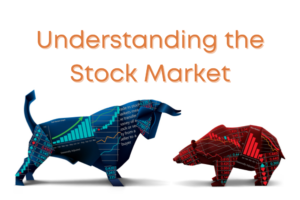Quick Comparison
Webull is thus likely to make the experience of active, tech-savvy traders more intuitive and give them some powerful tools on the go. At the same time, it doesn’t offer a full range of investment options and likely provides a lesser experience for long-term, more passive investors. On the other hand, TD Ameritrade appeals more to various traders. Maybe it is more fitting for those who have deep research resources and a great range of asset choices, such as forex and futures. Both offer commission-free trades for stocks and ETFs, but TD Ameritrade has a vast educational resource that makes it a massive contender for less experienced traders.
Features
What differentiates Webull is the modern and clean design, whole array of analytical tools, and experience with their mobile application.
Some asset classes it supports include stocks, ETFs, and even options and cryptocurrencies. On the other side of the Atlantic, TD Ameritrade supports all of the above with the addition of futures and forex trading and also offers a better overall pool of mutual funds and more diversified fixed income. In addition to that, TD Ameritrade also features the thinkorswim® trading platform, providing users with powerful tools and capabilities ideal for in-depth technical analysis and trade simulations.
Personal Experience
On the other hand, Webull, from a personal look, has a much smoother and more responsive platform. This is a great advantage, especially for persons who trade on the go with their phones. The learning curve to understand their platform is moderate, but the real-time data and execution speeds impress me.
TD Ameritrade is a bit bulkier in terms of an interface but indeed has deeper toolsets and resources invaluable when one wants to make informed decisions about trading, in particular the thinkorswim® platform that I had found to be very handy to test strategies without risking money
Pricing
Both Webull and TD Ameritrade offer $0 commissions on stocks and ETFs; however, unlike many rivals, there is no minimum deposit requirement with Webull. In comparison, TD Ameritrade shines in this area, with no commissions on more offerings, including over 2,300 commission-free ETFs.
Also, the costs for options trading are competitive. TD Ameritrade has a competitive edge in the overall cost structure of investments, notably the non-equity trades.
Pros & Cons
Webull: Pros
No minimum deposit required.
Robust mobile platform.
Commission-free stocks, ETFs, and options.
Cons:
Limited investment product range compared to TD Ameritrade.
Fewer research and educational materials.
TD Ameritrade: Pros
Extensive range of tradable securities, including forex and futures.
Superior research and educational resources.
Advanced trading platforms (Thinkorswim®).
Cons:
Platform can be overwhelming for beginners.
Some fund investments may carry high fees.
Alternatives
For those considering other platforms, ETRADE and Robinhood are viable alternatives. ETRADE offers a balance between advanced features and user-friendly interfaces, suitable for both beginners and experienced traders. Robinhood, much like Webull, offers an easy-to-use platform that appeals to beginners and traders interested in commission-free options and stock trading.
Customer Service and Support
Both platforms offer comprehensive customer service, with Webull providing 24/7 live chat support, and TD Ameritrade offering both phone and chat support, along with physical branches.
Conclusion/Summary: Who is the winner?
Choosing between Webull and TD Ameritrade boils down to your specific needs as an investor. If you prioritize advanced trading tools, diverse investment options, and extensive educational resources, TD Ameritrade is your best bet. However, for those who prefer a straightforward, quick, and mobile-friendly trading experience with strong technical tools, Webull may be the better choice. Overall, TD Ameritrade’s broader capabilities make it the superior choice for most traders, especially those seeking to explore a wider range of investment types.


